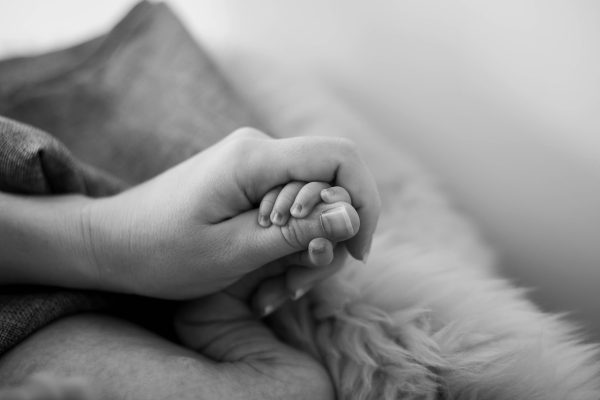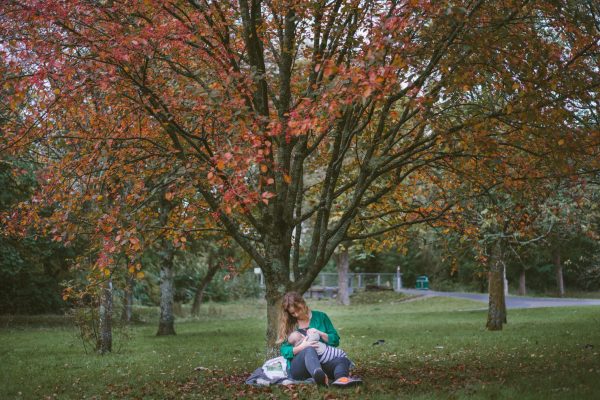In my second year at [Hebrew Union College], in a wonderful old classroom overlooking 68th street [in New York City], we learned berachot with our teacher Rabbi Julius Kravitz. I had never learned about all the occasions for a blessing — new clothes, new fruit, seeing the ocean, seeing a rainbow; being in the presence of a scholar, on hearing good news or even bad news — I was exhilarated! God is present at every moment; it is up to us to acknowledge God’s presence. We do it through saying blessings. Rabbi Kravitz said, “There is no important moment in the lifetime of a Jew for which there is no blessing.” I remember thinking, “Yes! There is no important moment in the lifetime of a Jew for which there is no blessing.” And then I realized that it was not true. There had been important moments in my lifetime for which there was no blessing…like when I first got my period. There in the classroom overlooking 68th street I became again the thirteen year old girl running to tell her mother she had just got her period. And I heard again my mother tell me that when she got her first period my grandmother slapped her. I could almost feel the force of my grandmother’s hand on my mother’s face, the shame, the confusion, the anger. I remembered my grandmother’s explanation when I asked her why; she answered, “Your mother was losing blood, she was pale, she needed color in her cheek, the evil eye, poo poo poo.” And, as I thought back to that time, I understood that there should have been a blessing—sh’asani eisha, she’hechianu [Thank you, God, for having made me a woman]— because holiness was present at that moment.
God had been present all along but I had never noticed. Perhaps I wasn’t looking, or perhaps I was looking in the wrong places. If I had been looking I would have looked to a great and powerful wind to tear the mountain and shatter the rocks, to the earthquake or to the fire…but instead, I needed to listen to the gentle whisper, the still small voice, the Presence one encounters by diving deep and surfacing. As the playwright Ztozake Shange wrote: “I found god in myself and; i loved her / i loved her fiercely” (Ntozake Shange, from for colored girls who have considered suicide when the rainbow is enuf).
A blessing would have gently taught me what it means to be a woman, would have invisibly instructed me how miraculous the human body is, would have drawn me closer to my mother, my grandmothers and all the women whose lives made mine possible. A blessing would have named the divinity present in this moment of transformation, this moment of connection. On 68th Street, I suddenly realized that my experience is Jewish experience. There is a Torah of our lives as well as the Torah that was written down. Both need to be listened to and wrestled with: both unfold through interactive commentary.
I have come to believe that all theology is autobiography; that to be a Jew means to tell my story within the Jewish story. I had understood on some level even as a child that the Jewish story had shaped my story; the story of Yetziat Mitzrayim [the going out of Egypt], natan Torah [the giving of Torah], and tikkun olam had formed the core of my sense of my self and my purpose in the world. But now I believe that my story also shapes the Jewish story. My experience propels me to ask different questions of the Torah, to uncover different voices that more closely resemble my own.
When my son was eighteen months old, it was time to wean him. I was ambivalent about it; working full time as a rabbi meant I didn’t spend much time with him. Nursing was a special bond that only he and I shared. I talked with a much older woman friend, a woman in her sixties, about my ambivalence. She said, “You’re going to have to wean your child many times in your life. You might as well learn to do it now.” I needed help so I turned to tradition, exploring Jewish images of nursing and weaning. Some of the images were stunning and empowering. In Pesikta de Rav Kahana 12:2, a psalm verse (Ps. 18:20) is interpreted to mean “God took out her breast to give Israel Torah.” That image, of God as a mother cradling her infant child, nursing her child, with Torah the milk she gives her child, gave me words for the “stirring of wonder” I felt as I was nursing my son. That image opened up my experience of God, of Torah and of self. Some other Jewish images of nursing were problematic — images of men breastfeeding children, images on the one hand liberating because they suggest a different vision of men nurturing children and on the other hand irritating because they describe men appropriating women’s birthgiving and sustaining functions. Most important, though, I recognized in the stories of Isaac and Samuel’s births the core of a weaning celebration, a ritual probably celebrated by our mothers over the generations. So we celebrated the weaning of my son with a ritual, a Jewish ritual of celebration and transformation. In the words of novelist Monique Wittig: “There was a time when you were not a slave, remember that. You walked alone, full of laughter, you bathed bare bellied. You say you have lost all recollection of it, remember… You say there are no words to describe this time, you say it does not exist. But remember. Make an effort to remember. Or, failing that, invent.” (Monique Wittig, Les Guerilleres [New York: Viking Press, 1969] 89).
From Four Centuries of Jewish Women’s Spirituality: A Sourcebook,1960-1990, Ed. Ellen Umansdky and Diane Ashton (Beacon Press, 1992).”Originally published in the CCAR Yearbook, 1987. © Central Conference of American Rabbis. Reprinted with permission of the CCAR.











